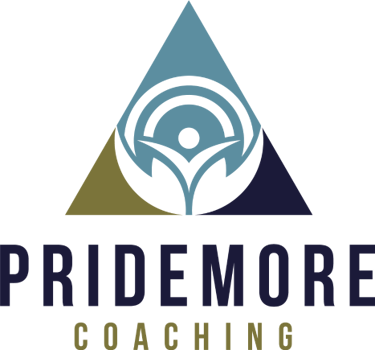You Blame the Rebel that You Sold Out
A journey from a Matchbox Twenty song to a concept by Marshall Goldsmith, with a detour through Alice's Wonderland. Your unique identity is your strength - let's celebrate it!
Heather Pridemore
6/14/20234 min read


At the intersection of a new Matchbox Twenty song and a book published by Marshall Goldsmith in 2007, there lies a visual metaphor from Disney’s animated film Alice in Wonderland.
In Matchbox Twenty's "Rebel", we find lyrics that strike a chord:
When you lose yourself in a photograph and the room gets heavy 'Cause you can't go back to sixteen To rainbow hair and ripped jeans To keep your head above the water Sometimes you had to hold your tongue We're all rebels when we're young I think it's time you let it go now When you get angry with yourself And there ain't no other road out You blame the 'rebel' that you sold out And it's all exciting You were so alive Like a wheel in motion You were terrified you'll lose it Hell, everybody loses.
Marshall Goldsmith's "What Got You Here Won’t Get You There" brings forward the concept of "An excessive need to be 'me.'"
"Sometimes you had to hold your tongue to keep your head above the water," sings Matchbox Twenty in "Rebel". This lyric articulates a reality where individuals navigating the corporate world often make a trade-off between their authentic selves and their 'corporate uniform'. For those who suppress their identity to conform, there's often lingering guilt - a sense of having sold out.
Author Marshall Goldsmith argues in "What Got You Here Won't Get You There," that an "excessive need to be 'me'" can hinder one's growth. It's crucial to distinguish between harmful stubbornness and healthy authenticity. Goldsmith's premise isn't a rejection of authenticity itself but a call to let go of habits and behaviors that no longer serve us. But what happens when this clinging is less about being stubborn or resistant and more about survival in a foreign corporate landscape?
Consider the scene from Disney's "Alice in Wonderland," where Alice finds herself at the end of the path, bewildered and lost, as the path she was walking on gets swept away by a dog. Like Alice, many professionals, particularly first-generation white-collar workers, reach a point in their careers where the skill set that carried them this far no longer serves them. They become unsure of how to navigate the next steps of their career development. The way forward becomes obscured, leading to a sense of disorientation and prompting the question - who am I in this new context and where do I go from here?
This situation often engenders a kind of self-alienation. The 'rebel' - a symbol of our unique identity and authentic selves - gets pushed aside to make room for a corporate persona that meets external expectations. But over time, the suppressed self yearns to break free, leading to unintended, sometimes disruptive, expressions of authenticity.
Yet, the 'rebel' is not the enemy here. It's not a part of us that needs to be silenced or changed beyond recognition to fit a corporate mold. It's a part of us that needs understanding, nurturing, and integration into our professional selves. This 'rebel' can make us stand out, drive innovation, and enrich the corporate culture with diversity of thought and experience.
Instead of suppressing the ‘rebel’, we should invite it to the table. A shift from uniformity to genuine inclusivity can lead to a dynamic, engaging, and successful work culture.
Yet, how do we go about integrating the 'rebel' persona with the professional persona? The key lies in understanding that our professional selves need not be devoid of authenticity. On the contrary, integrating the two can lead to a more fulfilling professional life and a healthier corporate culture.
Start by recognizing and appreciating the unique strengths and perspectives that your 'rebel' persona brings. This could be a knack for creative problem-solving, an ability to connect with diverse groups of people or a unique perspective born from your individual experiences and background.
Next, reflect on how these qualities can be beneficial in a professional setting. It's not about causing a rebellion but about showing that there's more than one way to achieve success in the corporate world. Integrate these elements into your professional life intentionally and consistently. This could mean choosing to present a novel idea in a meeting, standing up for inclusivity, or merely allowing your personality to shine through in your interactions.
Similarly, learn from your professional persona. Understand the qualities that make you effective in your role. This could be your ability to strategize, your leadership skills, or your professionalism. Recognize that these traits aren't in opposition but are, in fact, complementary.
With time, the line between the 'rebel' and the professional will blur. You'll find that you're not so much 'balancing' the two as you are integrating them into a coherent, intentionally authentic self. And in doing so, you'll encourage others around you to embrace their unique identities, contributing to a more inclusive, diverse, and successful corporate culture.
The concluding lines of "Rebel" offer a powerful message - "Let go and be yourself right now". It's an invitation to reconnect with our authentic selves, to embrace the 'rebel', and to bring our whole selves to our work. It's a reminder that we don't need to travel down an unfamiliar path alone and unanchored from our identities. Instead, we can forge a new path guided by our unique perspectives and experiences.
The 'rebel' is an integral part of you, a source of strength, creativity, and authenticity. Let it guide you, and transform your journey into one of authenticity and personal growth. Because ultimately, it's the courage to be ourselves that will take us where we want to go.
Contact:
(720)369-5735
Heather Pridemore, Founder | Coach


© 2023 Pridemore Coaching. All rights reserved.
Terms and Conditions
